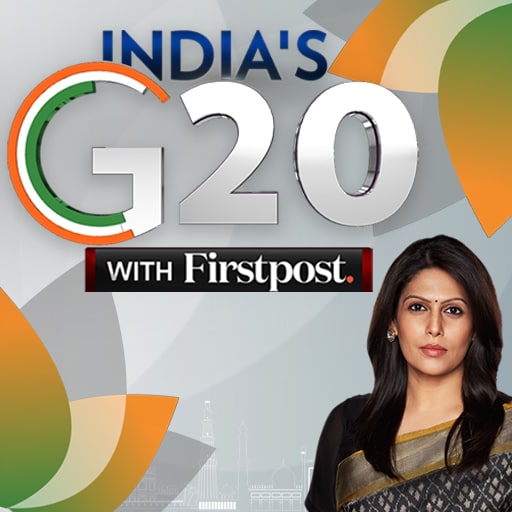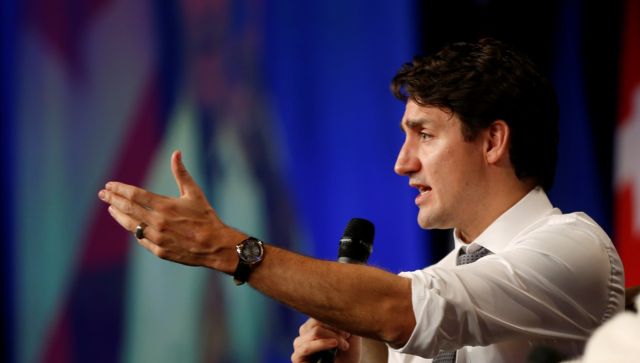Is trouble brewing between India and Canada? Social media is abuzz with claims that Canada’s prime minister Justin Trudeau, who is in New Delhi for the G20 Summit, has been snubbed by India. Trudeau, who skipped the President of India’s reception for the G20 leaders, also did not have a bilateral meeting with Prime Minister Narendra Modi. Instead, the two leaders engaged in talks on the sideline. But what’s going on? Let’s take a closer look: Trudeau skips G20 dinner, has sideline meet with PM Modi The Canada Prime Minister’s Office confirmed that Trudeau had attended all the working sessions, but skipped the G20 dinner hosted by the President of India. As per the Mojo Story, Trudeau also was not present at the announcement of the India-Middle East Corridor as well as the declaration on biofuels. As per The Canadian Press, Trudeau, who shook hands with Modi, was also the only leader to pull away from the longer handhold. [caption id=“attachment_13107562” align=“alignnone” width=“640”] Canada’s Justin Trudeau and Prime Minister Narendra Modi. Twitter/@narendramodi[/caption] Trudeau and Modi did also not have a formal bilateral meeting.
Canada’s Justin Trudeau and Prime Minister Narendra Modi. Twitter/@narendramodi[/caption] Trudeau and Modi did also not have a formal bilateral meeting.
Instead, the two leaders engaged in talks on the sidelines.
Modi after the meet posted on X: “Met PM @JustinTrudeau on the sidelines of the G20 Summit. We discussed the full range of India-Canada ties across different sectors.” Trudeau, responding to questions on Khalistan extremism and “foreign interference,” said, “Both the issues came up. Over the years, with PM Modi, we have had many conversations on both of those issues. Canada will always defend freedom of expression, freedom of conscience, and freedom of peaceful protest and it is extremely important to us at the same time we are always there to prevent violence and to push back against hatred.” “I think on the issue of the community, it is important to remember that the actions of the few do not represent the entire community or Canada. The flip side of it, we also highlighted the importance of respecting the rule of law and we did talk about foreign interference,” he added. This comes in the backdrop of India’s mounting concerns about pro-Khalistani extremism in Canada.

The Indian Mission in Canada has time and again been targeted by pro-Khalistan protesters. It is to be noted that Trudeau, prior to reaching India, said he would raise the issue of ‘foreign interference’ in Canada. “As always, we will emphasize how important the rule of law is,” Trudeau was quoted as saying by National Post. “It is incredibly important that we continue to protect Canadians from any and all types of interference,” Trudeau was quoted as saying. “One of the things we’re focused on in this inquiry is recognizing, yes, China and Russia are responsible for interference, but other countries engage in it as well,” Trudeau added. Trudeau’s statement came after his Liberal Party on Thursday tasked a Quebec judge with leading an independent public inquiry into allegations of attempted foreign interference.
Trudeau vowed that the commission would go “where the facts bring them.”
This is a victory for Opposition parties which for months had demanded a public probe into the minority Liberal government’s handling of intelligence that China sought to influence Canadian elections and policy. Beijing has repeatedly denied any interference. The Opposition New Democrat party later pushed to expand any inquiry to include Russia, Iran and India. “We called out the Liberals’ last plan to sweep this issue under the rug … and we will not hesitate to call them out again if this process doesn’t deliver real answers for Canadians,” Pierre Poilievre, the leader of the official opposition Conservative Party, said in a statement. Trudeau had in March appointed a special investigator to probe alleged election interference, but that probe ended prematurely with the investigator resigning, citing widespread opposition to his appointment and work. Trudeau NSA slams India In June, Trudeau’s National Security Adviser Jody Thomas claimed that India is among the top sources of foreign interference in Canada. “When I talk about foreign interference and economic security, I’m now talking about a number of state actors and non-state proxies,” Thomas said at a conference organised by the Canadian Global Affairs Institute. “This includes Russia, Iran and India. That said, the actor that comes up most on these issues, and it’s no surprise to anybody, is China,” she was quoted as saying in Toronto Star. University of British Columbia professor Vina Nadjibulla told Toronto Star that it was “striking” that Thomas listed India along with the three other countries – a move that could hit the close India-Canada ties. The NSA’s remarks came months after the Liberals highlighted India as part of their Indo-Pacific strategy and as a priority for establishing closer economic and scientific ties. “The relationship we have diplomatically with India is improving rapidly, but I think we would be kidding ourselves if we were not to acknowledge some of the diaspora politics and local issues here in Canada, which will have a significant impact,” Nadjibulla said. Trudeau heads a minority government which is backed by the New Democratic Party (NDP), headed by Jagmeet Singh, a Khalistani sympathiser.
Singh’s NDP has 24 seats in parliament, whose support is critical for the survival of the Trudeau government.
Singh has been called out time and again on Twitter for attempting to meddle in Indian affairs, especially after he “raised concerns” over the crackdown in Punjab against ‘Waris Punjab De’ chief and Khalistan sympathiser Amritpal Singh. Singh has long been suspected of attempts to link Khalistani and Kashmiri separatism from his perch in Canada. He is apparently connected with prominent Khalistani and Kashmiri separatist groups based in different countries of Europe Canada pauses FTA negotiations The developments come a week after Canada paused negotiations for a free trade agreement with India. News18 quoted India’s Canada envoy Sanjay Kumar Verma as saying Ottawa had asked for a pause “within the last month" but did not elaborate why. An official said both countries will mutually decide on resuming the talks in the future. “The Canadian side conveyed that they were taking a pause in India-Canada negotiations on the Early Progress Trade Agreement. This will enable us both to take stock of progress and next steps. We will decide by mutual agreement when negotiations will resume,” the official told PTI. However, the official did not provide more details about the issue. Over half a dozen rounds of talks have been held between the countries on the trade pact so far. In March last year, the two countries re-launched negotiations for an interim agreement, officially dubbed as Early Progress Trade Agreement (EPTA). In such agreements, two countries significantly reduce or eliminate customs duties on the maximum number of goods traded between them. They also liberalise norms for promoting trade in services and attract investments. Indian industry was looking at duty-free access for products like textiles and leather besides easy visa norms for the movement of professionals. Canada has interests in areas like dairy and agricultural products.
The bilateral trade between the countries has increased to $8.16 billion in 2022-23 from $7 billion in 2021-22.
Think-tank Global Research Initiative (GTRI) Co-Founder Ajay Srivastava said that halting of India-Canada free trade agreement negotiations does not harm Indian trade interests as more than half of Indian products already enter Canada duty-free and would not have benefitted from this pact. Indian services sector firms in hospital or education sectors are not globalised enough to establish physical business in Canada, he said. “Stopping the FTA may harm Canadian exports, which would have benefitted from the crumbling of the high tariff wall in India. “The on-again, off-again FTA negotiations began in 2010, stopped in 2017, restarted in 2021, and have halted again. This is likely due to Canada’s reluctance to meet India’s service-related requests, especially concerning the movement of professionals (Mode IV),” Srivastava said, adding Canada may have found India’s goods offer lacking, with significant exclusions. Global trade dynamics are shifting rapidly, with major players like the US and European Union (EU) imposing stricter regulations on imports, especially in climate and technology. “It’s advisable for countries to focus on building domestic resilience and delay further trade openings until there’s a clear and favourable economic justification,” he said.
Interestingly, this isn’t the first time that Trudeau’s trip to India has been in the news for all the wrong reasons.
Impact Shorts
More ShortsTrudeau’s visit to India in February 2018 was rife with allegations that he was given the cold shoulder by the Indian government – again over the pro-Khalistan elements in Canada. Vivek Dehejia, a resident senior fellow at the IDFC Institute, at the time told CNBC, ″[The trip] is best described as a slow-moving train wreck … Very little substance has come out of it and very little actually will emerge from this visit apart from some nice photo ops.” With inputs from agencies
)